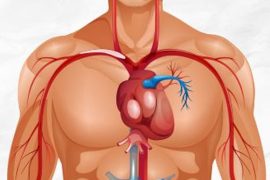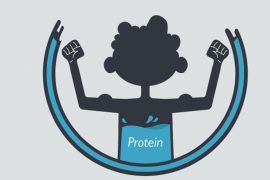Managing chronic ailments like asthma can be particularly challenging in children, who naturally want to be active and play with their friends. Childhood asthma, which affects a significant number of children, can disrupt daily activities and diminish their overall quality of life. However, with the right dietary choices and lifestyle adjustments, asthma symptoms can be better regulated, helping to reduce their intensity and frequency. A well-balanced diet, rich in anti-inflammatory and immune-boosting foods, can play a supportive role in keeping the condition under control and allowing children to lead more active, fulfilling lives.
Asthma, affecting 6–10% of children in India, leads to symptoms like breathing difficulty, chest congestion, and persistent coughing. While no single food can cure asthma, a balanced and mindful diet can significantly help reduce the frequency and severity of flare-ups. Parents should be alert to both food and environmental triggers that may worsen symptoms. Since the mid-20th century, the rise in asthma cases in India has been linked to lifestyle shifts, increased consumption of processed and sugary foods, fast food, as well as urbanisation and exposure to pollutants.
Key environmental contributors—such as air pollution, tobacco smoke, poor housing conditions, allergens, and chemical exposure—exacerbate the condition further. To help manage asthma symptoms effectively, children’s diets should emphasize fresh fruits, vegetables, whole grains, lean proteins, and healthy fats. At the same time, it’s best to limit or avoid processed foods, sugary snacks, carbonated drinks, and artificial additives that may trigger inflammation or allergic reactions. This approach not only supports better lung health but also contributes to overall well-being and resilience.
Choosing the Best Diet for Kids with Asthma
When it comes to managing childhood asthma, diet plays a crucial role. Research suggests that both the Mediterranean diet and a plant-based diet are linked to fewer asthma symptoms and better asthma control.
Mediterranean Diet: This diet is rich in fruits, vegetables, whole grains, and healthy fats like olive oil. It has been shown to help reduce wheezing, inflammation, and other asthma symptoms, particularly when processed foods, fast food, and meats are minimized.
Plant-Based Diet: High in fiber and low in saturated fat, plant-based diets help lower inflammation, which can significantly ease asthma symptoms. By emphasizing whole plant foods, it can reduce the severity of asthma attacks.
Foods That Ease Asthma Symptoms
Certain foods can directly benefit children with asthma by reducing inflammation and supporting lung health:
Fruits and Vegetables: Apples, kiwis, bananas, oranges, pomegranates, spinach, and gourd vegetables are packed with vitamins and antioxidants that can reduce airway inflammation and improve overall lung function.
Whole Grains: Oats, quinoa, and millets provide fiber and nutrients that help support immune function and combat inflammation.
Omega-3 Fatty Acids: Fish such as Indian mackerel, sardines, rohu, and pomfret are excellent sources of omega-3 fatty acids. For plant-based options, walnuts provide a good alternative. Omega-3s are known for their anti-inflammatory effects, benefiting asthma sufferers.
Low-Fat Dairy: Products like milk, homemade fresh curd, and paneer (cheese) provide essential nutrients such as calcium and magnesium that may help reduce inflammation. Opting for low-fat, unsweetened versions is ideal.
Indian Foods for Kids with Asthma
Traditional Indian ingredients offer various benefits for managing asthma symptoms:
Ginger (Adrak): Helps relax airways and eases breathing.
Turmeric (Haldi): Contains curcumin, which fights inflammation and protects the airways.
Tulsi (Holy Basil): Clears congestion and supports overall lung health.
Garlic (Lahsun): Rich in antioxidants that help combat airway inflammation.
Mulethi (Liquorice Root): Soothes irritated airways and helps manage coughing.
Pippali (Long Pepper): Clears mucus and supports lung function.
Amla (Indian Gooseberry): Boosts immunity with its high vitamin C content and helps reduce swelling.
Fenugreek Seeds (Methi): When combined with honey and ginger, it can effectively help manage asthma symptoms.
Foods and Ingredients to Avoid
Certain foods and ingredients can trigger asthma symptoms and worsen control, so it’s important to minimize or avoid them:
Processed and Fried Foods: Fast food, deep-fried snacks, and packaged foods often contain trans fats and additives that increase airway inflammation and should be avoided.
Red and Fatty Meats: Diets high in red meats and fatty cuts of meat are linked to poorer asthma control and should be limited.
Dairy Products: Milk, cheese, and yogurt can be problematic for children with sensitivities, potentially triggering asthma symptoms.
Artificial Sweeteners and Additives: Ingredients like aspartame, food coloring, and nitrates may worsen asthma, so these should be avoided when possible.
Sulfite-Containing Foods: Dried fruits, bottled lime juice, shrimp, pickled foods, papads, and processed foods may contain sulfites, which can be a trigger.
Salicylates: Found in foods like coffee, tea, and some processed products, these can sometimes trigger asthma symptoms.
Sugary Foods and Refined Carbs: Excessive sugar and refined carbs contribute to inflammation and weight gain, which can make asthma harder to control.
Common Allergens: Foods like eggs, peanuts, tree nuts, soy, wheat, mushrooms, fish, and shellfish are common allergens that may trigger childhood asthma who also have food allergies.
A balanced, nutrient-rich diet that emphasizes fresh fruits, vegetables, whole grains, omega-3-rich foods, and certain Indian spices can support better asthma control in children. At the same time, avoiding foods that increase inflammation, such as processed foods, red meats, dairy (if sensitive), and allergens, is equally important. If dietary changes are made carefully and consistently, they can significantly contribute to the overall well-being and asthma management of children.
Disclaimer:
The information contained in this article is for educational and informational purposes only and is not intended as a health advice. We would ask you to consult a qualified professional or medical expert to gain additional knowledge before you choose to consume any product or perform any exercise.







